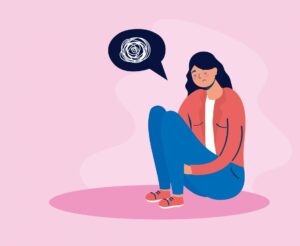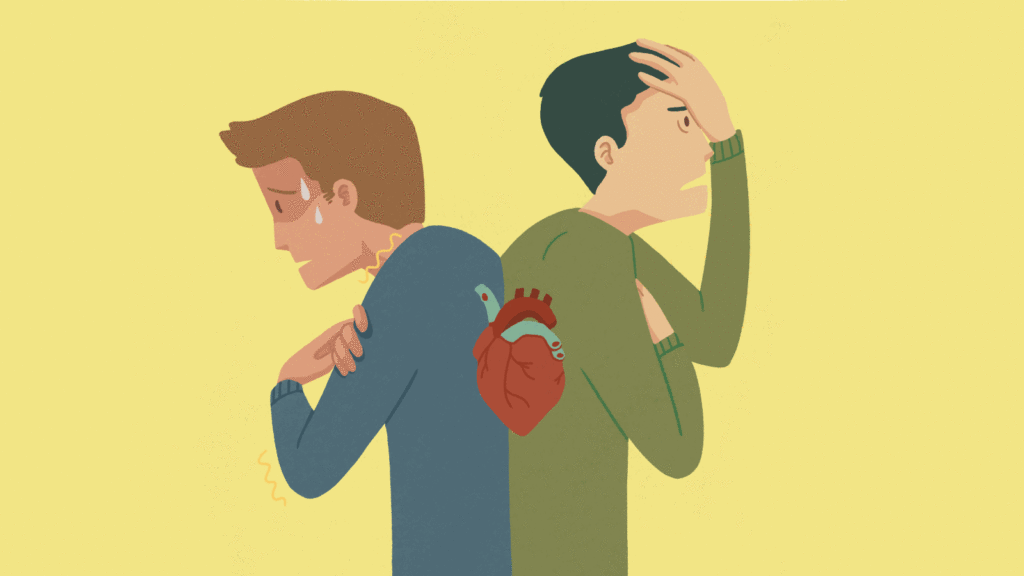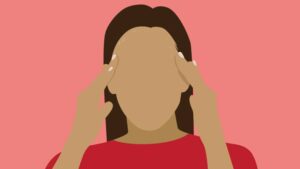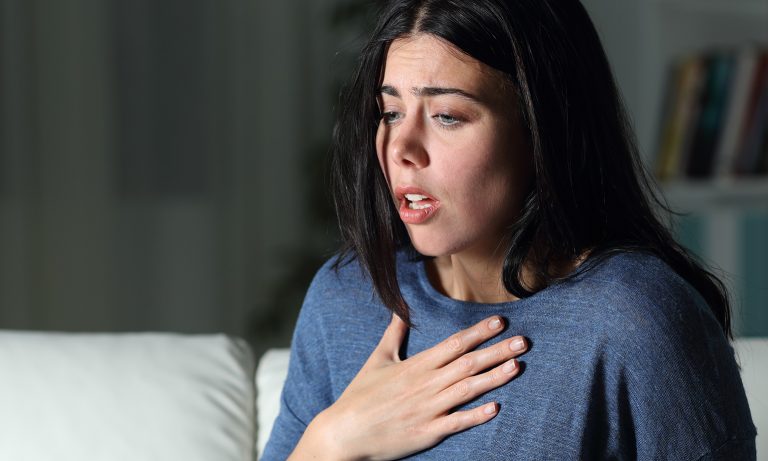Anxiety attacks can be a very frightening experience. For some people, the first time they have an anxiety attack, they may not even know what is happening to them. They may feel like they are having a heart attack or that they are going crazy. In this blog post, we will discuss the symptoms of an anxiety attack so that you will be able to recognize them if you ever experience one. We will also talk about ways to deal with an anxiety attack when it happens.
Contents
What Is an Anxiety Attack?
 Anxiety attacks, also called panic attacks, are episodes of intense fear or apprehension that can last anywhere from several minutes to hours. These attacks may occur out of nowhere and for no apparent reason. They can be triggered by a specific event or situation, such as public speaking or flying in an airplane. Anxiety attacks usually peak within ten minutes, but some symptoms may persist for hours.
Anxiety attacks, also called panic attacks, are episodes of intense fear or apprehension that can last anywhere from several minutes to hours. These attacks may occur out of nowhere and for no apparent reason. They can be triggered by a specific event or situation, such as public speaking or flying in an airplane. Anxiety attacks usually peak within ten minutes, but some symptoms may persist for hours.
Anxiety attacks are also different from what is commonly known as an anxiety disorder. Also, Anxiety disorders are chronic, long-lasting conditions that can be debilitating. An anxiety attack is a discrete event that may occur in people who do not have an anxiety disorder.
Approximately one in eight adults will experience an anxiety attack at some point in their lifetime. Women are more likely than men to experience anxiety attacks, and people who have a family history of anxiety or other mental health disorders are also at increased risk.
Mostly everyone has felt anxious at some point in their lives. It’s a normal emotion that occurs in response to a perceived threat. But for people who have an anxiety attack, the feeling of anxiety is more intense and lasts longer than what is considered normal. Additionally, people who experience anxiety attacks may avoid certain situations or activities out of fear of having another attack.
Different Anxiety Attack Symptoms

Anxiety attacks can manifest differently for different people. It is important to be aware of the symptoms that may present themselves so that you can better manage them.
Common physical symptoms of an anxiety attack include:
Heart Palpitations
Heart palpitations are one of the most common symptoms of anxiety attacks. You may feel like your heart is racing or fluttering, and it may be hard to catch your breath. This can be extremely frightening and may lead to a feeling of impending doom.
Shortness of Breath
Anxiety can also cause you to feel short of breath. This may be due to the heart palpitations mentioned above, or it could be a separate symptom entirely. Either way, it can make you feel very claustrophobic and panicky.
Chest Pain
Another physical symptom that is often experienced during an anxiety attack is chest pain. This pain can range from mild to severe, and it may feel like a tightness or pressure in the chest. It is important to remember that chest pain can also be a symptom of a heart attack, so if you experience this symptom, it is important to seek medical attention immediately.
Dizziness and Lightheadedness
Another common symptom of anxiety attacks is dizziness or lightheadedness. This may be due to the increase in heart rate that often accompanies anxiety. It can also be caused by hyperventilation, which is when you take shallow breaths or breathe too quickly. This can cause you to feel like you are not getting enough oxygen, which can lead to dizziness and lightheadedness.
Sweating
Sweating is another common physical symptom of anxiety attacks. You may feel like your whole body is sweating, or you may only have sweaty palms. This is due to the fight-or-flight response that is triggered when you are experiencing anxiety.
Trembling or Shaking
Trembling or shaking is another common symptom of anxiety attacks. This may be due to the increased heart rate, or it may be a separate symptom entirely. Either way, it can be very frightening and make you feel out of control.
Constant Nervousness or Worry
If you are constantly feeling nervous or worried, even when there is no apparent reason to do so, this may be a symptom of an anxiety disorder. This can make it difficult to concentrate or focus on anything else, and it can make you feel on edge all the time. It also may make you more likely to startle easily.
Insomnia
Anxiety can also cause insomnia, which is when you have difficulty falling asleep or staying asleep. This may be due to the constant worry and nervousness that are associated with anxiety disorders. Insomnia can also make anxiety worse, as it can lead to fatigue and irritability.
Fatigue
If you are constantly tired, even after a full night’s sleep, this may be a symptom of an anxiety disorder. Fatigue can make it difficult to concentrate and focus on tasks, and it can make you more likely to feel overwhelmed by your symptoms. It is important to get enough rest if you are experiencing fatigue so that you can better manage your anxiety.
Are Anxiety Attack Symptoms Common?
 Anxieties and panic attacks are more common than most people think. In the world, it is estimated that 40 million adults suffer from some form of anxiety. That’s 18% of the population! And of those 40 million adults, only 36.
Anxieties and panic attacks are more common than most people think. In the world, it is estimated that 40 million adults suffer from some form of anxiety. That’s 18% of the population! And of those 40 million adults, only 36.
Anxiety attack symptoms can vary greatly from person to person. Some people may experience a racing heart, while others may feel like they can’t catch their breath. Others may feel nauseous or dizzy, and some may even feel like they’re having a heart attack.
If you think you might be having an anxiety attack, it’s important to pay attention to your body and see if you can identify any physical symptoms. Once you know what your symptoms are, it will be easier to find a treatment that works for you.
How To Treat Anxiety Attack Symptoms?
There are many different treatments for anxiety attacks, and what works for one person may not work for another. Some people find that therapy is helpful, while others find relief in medication. There is no “right” way to treat anxiety, so it’s important to experiment until you find something that works for you.
These are some of the options for treating anxiety:
-Cognitive behavioral therapy (CBT): CBT is a type of therapy that helps you change the way you think about and respond to anxiety.
-Exposure therapy: This type of therapy involves gradually exposing yourself to the things you’re afraid of. The goal is to learn that there’s nothing to be afraid of and that you can cope with the anxiety.
-Medication: There are several types of medication that can be used to treat anxiety, including antidepressants, anti-anxiety medications, and beta blockers.
If you’re experiencing anxiety attacks, it’s important to seek help from a mental health professional. They can help you identify the root cause of your anxiety and develop a treatment plan. untreated, anxiety can lead to serious health problems, so don’t hesitate to get help if you’re struggling.
Preventing Anxiety Attack Symptoms
Preventing anxiety attack symptoms is not as difficult as it may seem. There are a few simple things that you can do to help prevent them.
First, try to identify your triggers. What makes you anxious? Once you know what your triggers are, you can try to avoid them or be prepared for them when they happen.
Second, make sure that you’re getting enough sleep and eating a healthy diet. Both of these things can help reduce stress levels and make it less likely for anxiety attacks to occur.
Third, exercise regularly. Exercise releases endorphins which have mood-boosting properties. This can help reduce anxiety and prevent anxiety attacks from happening as often.
Fourth, try relaxation techniques such as deep breathing or meditation. These can help you calm down when you’re feeling anxious and prevent an anxiety attack from occurring.
Conclusion
Anxiety attacks can be debilitating, but with the proper knowledge and treatment, they are manageable. If you or someone you know is experiencing anxiety attack symptoms, don’t hesitate to reach out for help. With the right support, anxiety doesn’t have to rule your life.
If you’re struggling with anxiety, there are plenty of resources available to help you cope. The most important thing is to seek out professional help if you feel like your anxiety is starting to take over your life. Don’t suffer in silence- there’s no shame in getting the help you need to live a happy and healthy life!
Hope this article was of help to you! If you are suffering from anxiety attacks, you may seek help from Therapy Mantra. We have a team of highly trained and experienced therapists who can provide you with the tools and skills necessary for overcoming anxiety attacks. Contact us today to schedule an online therapy or download our free Android or iOS app for more information.


